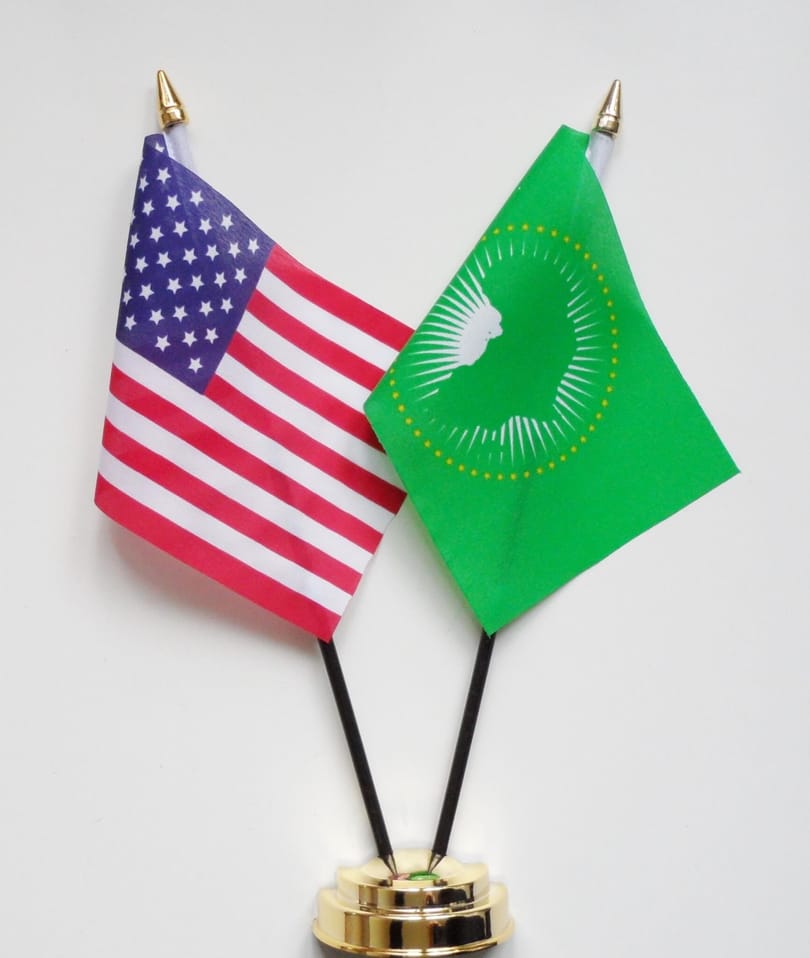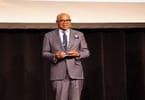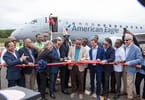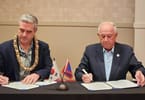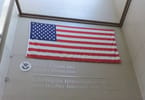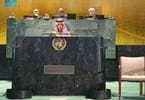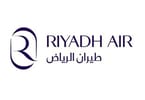Since the United States became the first non-African country to establish a dedicated diplomatic mission to the African Union in 2006, the United States and African Union Commission (AUC) have built an enduring partnership based on mutual interests and shared values. The United States has worked with the AUC, since launching an official High Level Dialogue in 2013, to advance our partnership in four critical areas: peace and security; democracy and governance; economic growth, trade, and investment; and opportunity and development. Discussions at the 7th U.S.-African Union Commission High Level Dialogue held November 14 – 15, 2019 in Washington, D.C. advanced mutual interests in advancing stability and building economic opportunity.
Robust and Growing Economic Ties
• The United States has provided sustained advisory support of the African Union Commission Peace Support Operations Division since 2005.
• The United States has supported 23 AU member states in strengthening their capacity to prepare, deploy, and sustain peacekeepers in UN peace operations and AMISOM.
Prevention and Addressing the Causes of Fragility and Instability
• The United States has planned support for the harmonization of AU and Regional Economic Communities to benefit the African Continental Early Warning System.
• To prevent violent extremism, the United States has provided sustained security sector and development assistance, notably through AU leadership and participation in an Africa Center for Strategic Studies (ACSS) regional workshop on Strategic Approaches to countering violent extremism.
• U.S. support has totaled over $487 million for conventional weapons destruction (CWD) activities throughout Africa, including humanitarian demining to enhance civilian security and lay the groundwork for sustainable development, and weapons and ammunition management programs that prevent the illicit diversion of small arms, light weapons, and ammunition to terrorists and criminals.
• The United States has provided over $10 million to establish the Africa Centers for Disease Control and Prevention (Africa CDC) and enable it to prevent, detect, and respond to outbreaks of infectious diseases on the continent, including the secondment of two U.S. Centers for Disease Control and Prevention (CDC) experts, the creation of an Emergency Operation Center, and the training of epidemiologists and incident managers.
Maritime Security and the Blue Economy
• The United States has provided direct advisor support of AUC Peace Support Operations Division work toward operationalization of 2050 Africa’s Integrated Maritime Strategy through support of maritime dialogue workshops.
• The United States has planned support for the eventual creation of a dedicated maritime/blue economy department within the AUC in 2020.
Strengthening Democratic Institutions and Human Rights
• The United States has continued coordination with the AU on its efforts to ensure participation of marginalized communities in 2020 elections and other political processes of AU member states.
• A recent award of $650,000 supports the AU’s Campaign to End Child Marriage in line with the U.S. Strategy to Prevent and Respond to Gender Based Violence Globally.
• The United States awarded of $4.8 million to support the establishment of the AU Hybrid Court for South Sudan to ensure accountability for crimes committed in conflict.
Women’s Empowerment
• The United States has deployed tools for African women entrepreneurs under the U.S. Women’s Global Development and Prosperity (W-GDP) Initiative:
o The United States supported the Women Entrepreneurs Finance Initiative (We-Fi) with $50 million to advance women’s entrepreneurship in economies around the globe. In May 2019, We-Fi awarded the African Development Bank (AfDB) $61.8 million for its program “Affirmative Finance Action for Women in Africa” (AFAWA) to improve access to finance for women-owned/led small and medium enterprises (WSMEs) in 21 African countries.
o In addition to the AFAWA initiative, the We-Fi awarded the World Bank Group $75 million for their project entitled “Creating Markets for All.” The project addresses the barriers that constrain women-owned and led SMEs at multiple levels including financial and market access. Complementary non-financial services provided are to address constraints for women. The project targets 18 countries globally, including ten sub-Saharan African Countries.
o The United States launched the Academy for Women Entrepreneurs (AWE) in several AU member states to support African women entrepreneurs in fulfilling their economic potential through facilitated online education, networking, and access to mentorship. Building on the success of the inaugural cohort, AWE will scale and expand to provide thousands more the opportunity to build sustainable businesses.
o The United States launched the U.S. Overseas Private Investment Corporation’s (OPIC) 2X Africa initiative, a gender-lens investment guideline to directly invest $350 million to help mobilize $1 billion in capital to support women-owned, women-led, and women-supporting projects in Sub-Saharan Africa.
• The United States strengthened professional networking, business development, financing, and trade capacity building opportunities for International Visitor Leadership Program (IVLP) entrepreneurship program participants, which resulted in a network of more than 60,000 women entrepreneurs and 44 business chapter associations across Africa. African Women’s Entrepreneurship Program (AWEP) and other IVLP alumnae have created more than 17,000 jobs in the region.
• The United States leveraged the AWEP network, Beninese civil society, and the government of Benin, to implement SHE’s GREAT! Benin, a program that empowers girls and connects them to skills in agricultural science sustainability techniques and robotics, renewable energy, and app design skills to address and overcome the complex social and economic challenges that girls face around the world. In addition to providing improved technical skills and leadership training, and resources to prevent and respond to gender-based violence (GBV), including harmful traditional practices, SHE’s GREAT! Benin links girls and boys to networks of mentors and partners eager to support them as they execute community projects and learn new strategies for continuing their education, and for girls’ pursuit of careers which are not traditional for women.
• The United States committed $50 million to the World Bank’s We-Fi to increase access among AU member states to financial services for women entrepreneurs, women-owned and women-led small and medium-sized enterprises (SMEs), and women customers of financial services providers.
A Level Playing Field for U.S. Business
• The United States and AUC are collaborating through on-going, exchanges of best practices and technical support to the AU to reach its African Continental Free Trade Area (AfCFTA) objectives of lowering barriers to trade and investment, boosting competitiveness and attracting investment, diversifying trade, and helping countries move up the value chain.The U.S. government modernized processes for facilitating two-way trade and investment with Africa through Prosper Africa, a U.S. initiative rolled out earlier this year to boost two-way trade and investment between the United States and Africa by bringing together the full range of U.S. government resources. Prosper Africa envisions establishing a single, consolidated virtual platform that facilitates transactions by identifying opportunities, expediting deals, and managing risk through a variety of programs; and partnering with African governments to enact reforms that foster transparent, predictable, and resilient business climates.
Agricultural and Food Safety Cooperation
• Facilitated by U.S. support, the AU’s Sanitary and Phytosanitary (SPS) Policy Framework was completed by the AU Department of Rural Economy and Agriculture, and approved by the AUC Specialized Technical Committee, in October 2019.
Digital Economy and Cyber Cooperation
• The United States placed a new International Computer Hacking and Intellectual Property Advisor (ICHIP) at the U.S. Mission to the African Union to train AU member state law enforcement officials.
• The United States is providing additional programmatic support to the U.S. Telecommunications Training Institute (USTTI), which includes capacity building for African ICT officials. The majority of USTTI participants are from Africa.
• Planned regionally-based workshops on national cyber strategies include an April 2020 workshop on national cyber strategies for 10 AU member states and a September 2020 workshop on cybercrime and national cyber strategies for AU member states.
• The United States provided assistance to AU member states to improve cyber incident handling, including a November 2019 workshop on Computer Security Incident Response Teams (CSIRTs) and information exchange for nine AU member states.
WHAT TO TAKE AWAY FROM THIS ARTICLE:
- • The United States has provided over $10 million to establish the Africa Centers for Disease Control and Prevention (Africa CDC) and enable it to prevent, detect, and respond to outbreaks of infectious diseases on the continent, including the secondment of two U.
- Since the United States became the first non-African country to establish a dedicated diplomatic mission to the African Union in 2006, the United States and African Union Commission (AUC) have built an enduring partnership based on mutual interests and shared values.
- o The United States launched the Academy for Women Entrepreneurs (AWE) in several AU member states to support African women entrepreneurs in fulfilling their economic potential through facilitated online education, networking, and access to mentorship.


